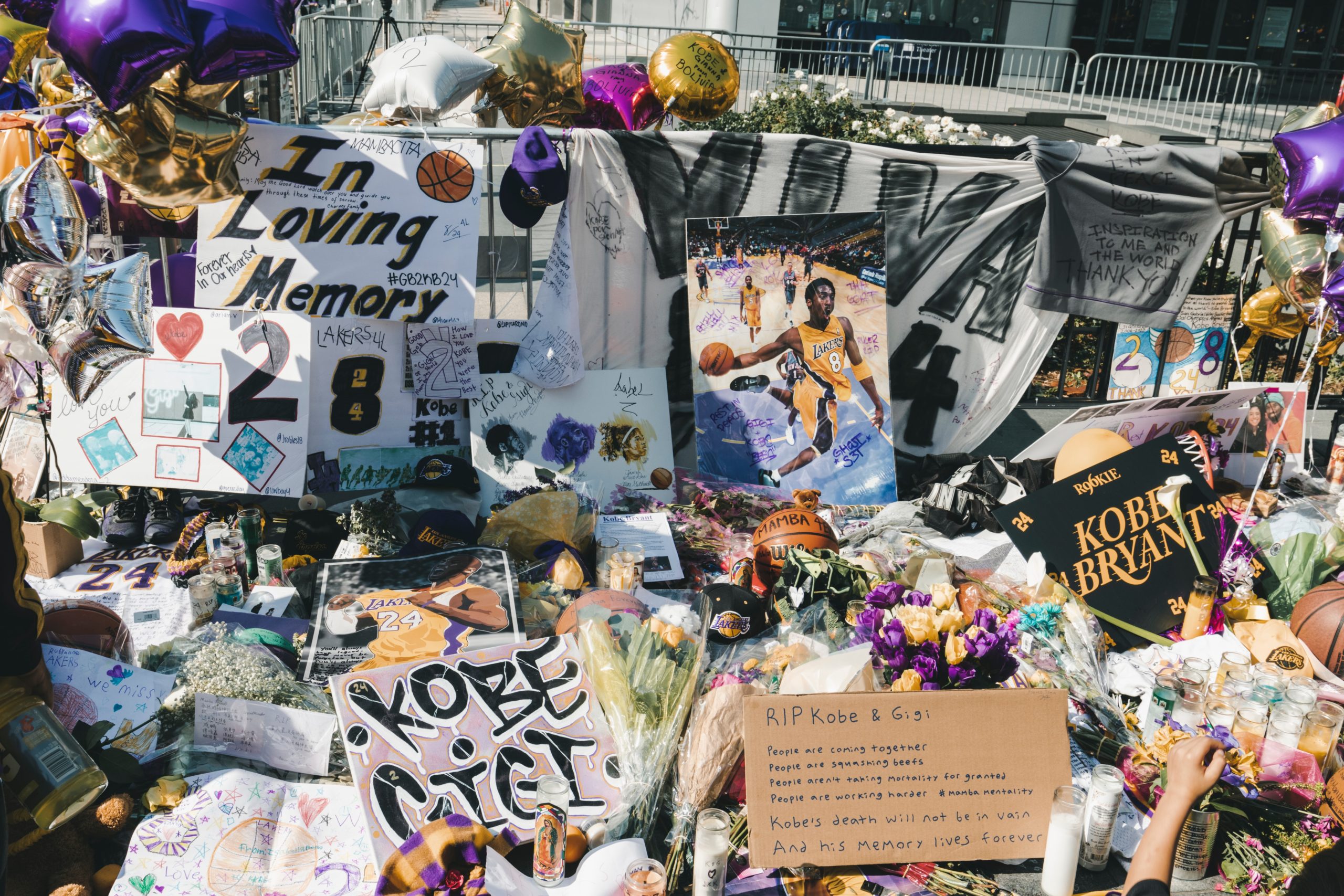In this Op-Ed, Leslie Guzmán explains the complicated grief of losing someone she never met.
It is December 28, 2015, just a few days after my 15th birthday. My brother and I are sitting in the nosebleeds of the Spectrum Center, watching Kobe Bryant — our hero — play his final game against the Charlotte Hornets.
It was my first basketball game, and the energy in the arena surpassed what I had expected. Despite being a home game, the crowd was wild and loud for Kobe, who was sporting his trademark 24 Lakers jersey. Everywhere I looked, someone was wearing his jersey, and everyone was on their feet. We were not expecting a breaking performance; we just wanted to see Kobe ball.
This memory is forever present in my mind. It was a full-circle moment. Some of my fondest memories growing up were staying up late with my brother to watch Kobe play and dominate the court. Now, I could finally say I experienced Kobe’s greatness in person.
January 26, 2020 — a day I will never forget. When I learned about the sudden deaths of Kobe Bryant; his daughter, Gigi; and the 7 other passengers, I instantly broke down into tears. I spent multiple days reading story after story on the helicopter crash that took my hero away. I scrolled through my Twitter and Instagram feeds, reading hundreds of posts dedicated to Kobe. It was a heartbreaking loss, and the world was collectively grieving.
I was traumatized by his death. It is hard to explain, but Kobe gave the illusion of immortality — in my eyes, he was invincible. How could the Black Mamba, my hero, be dead? Heroes do not die. Losing Kobe was a devastating reminder that life and death are real.
He was just getting started. Kobe was only a few years into his retirement, already working on his second act. He had just won an Academy Award for his animated short film, “Dear Basketball.” He had just published his new book. He had just released his podcast. In the words of LA Times columnist, Bill Plaschke, “his legend was not supposed to end this way.” Kobe had so much left to offer.
In the middle of expressing my grief, I questioned the validity of my feelings. I was confused because I did not know I could grieve someone I did not personally know. See, in my mind, existed a hierarchy of grief. Generally, you grieve over people who are physically present in your life; close relatives and friends, but this time it was different.
Although I did not have a personal relationship with Kobe, similar to a relative, he was someone I admired. Instead of wanting to be like Mike, I wanted to be like Kobe. A little piece of him was a part of me, and because of that, he was inextricably tied to certain moments in my life.
In an interview with HuffPost, David Kaplan, chief professional officer of the American Counseling Association, reassured what I was feeling.
“We grow up with these people,” Kaplan said. “We see their movies, we hear their music on a regular basis and we really get to know them. In a sense, they become a member of our family — especially the ones we really like — so when they die, it’s like an extended member of our family dies. It’s somebody we feel like we know.”
My grief was normal, and if you have shared a similar experience, yours is too. We should not look away from tragedy and push grief away. It is simply a part of the human experience. Allow yourself to feel. Know that you get to mourn the loss of things that matter to you — even if it is someone you did not know.
- Songs from 2021 You Need to Listen To - January 21, 2022
- Scared to be back on campus? Me too - September 3, 2021
- Shows I’ve Binged During the School Year - June 28, 2021

